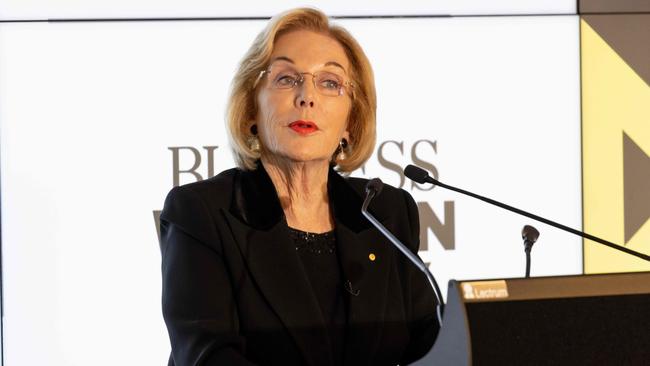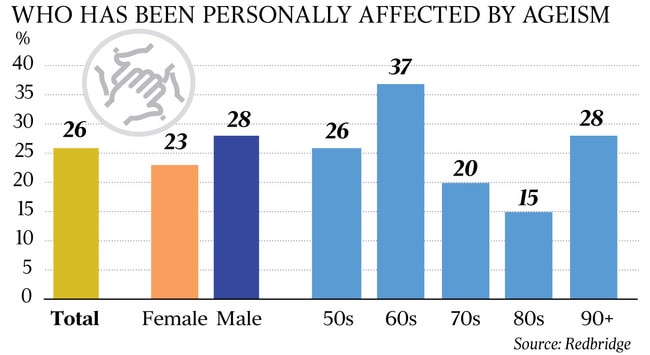Ageism worse for those in their 50s, with older Aussies judged over the hill
ABC chair Ita Buttrose, 80, says ageism remains ‘rampant’ after a new survey found Australians aged in their 50s and 60s are most likely to be affected by ageist attitudes.

Australians in their 50s and 60s are in the firing line of ageism, more so than those 80 and above.
And more 50- and 60-somethings consider ageism a “serious problem” than those older, new research finds.
The polling reveals 38 per cent of those aged 50 to 59 say they had “been ignored or made to feel invisible” compared to just 19 per cent of those in their 80s.
It finds almost 30 per cent of 50-59-year-olds say they have been rejected for a job due to their age, with one in four people aged between 50 and 69 saying they have “been made to feel like I am too old for my work”.
Those in their 60s are most likely to have experienced ageism in the past year, with 37 per cent reporting at least one incident compared to 15 per cent for those in their 80s and 26 per cent for all people over 50, the survey of more than 1000 people commissioned by advocacy group EveryAGE Counts found.
Overall, seven out of 10 Australians over 50 consider ageism – negative attitudes and beliefs about ageing and older people – a serious problem, something EveryAGE Counts director Marlene Krasovitsky said “should make us all sit up and take notice”.
Ms Krasovitsky said much previous polling had itself been ageist, lumping Australians over 50 into one amorphous group.
“This polling shows us that Australians in their 50s and 60s are likely to encounter ageism at work or when applying for jobs,” she said. “Those in their 80s and 90s, conversely, are more likely to report experiencing ageism in the health system, either by being denied treatments or by being ignored in favour of a carer.”
That those in their 50s and 60s were significantly more likely to call out ageism as a serious problem than those older may show an increasing willingness among baby boomers to drive change, Ms Krasovitsky said.

ABC chair Ita Buttrose, 80, said ageism remained “rampant” in Australia, with too many individuals and workplaces still considering people over 50 as “on the scrap heap”. “It says it all that people don’t feel open about being 50 or over in Australia, that so many women say to me they become invisible at 50,” Ms Buttrose said.
“I think people should look harder at the lives of older Australians and see all the amazing things they are doing.”
Other countries seemed more comfortable than Australia to recognise the wisdom, experience, networks and body of knowledge older people have, and how valuable that can be when mentoring younger generations, Ms Buttrose said. “I’ve looked at research from The Netherlands, where they have run programs to ensure older people stay in or return to the workforce. It’s worked well, they take less time off, they value the job, they work hard, they don’t spend all day texting their friends.”
Ms Buttrose said it was disappointing so many older Australians felt talked down to or ignored, or that wrong assumptions were made about their capabilities.
“Stop and look at the people around you. You’ll see it’s nonsense the idea that older people can’t get around technology, for instance. So many are all over social media, online shopping and so forth. I’d say to people, think about how you would like to be treated when you are older.”




To join the conversation, please log in. Don't have an account? Register
Join the conversation, you are commenting as Logout